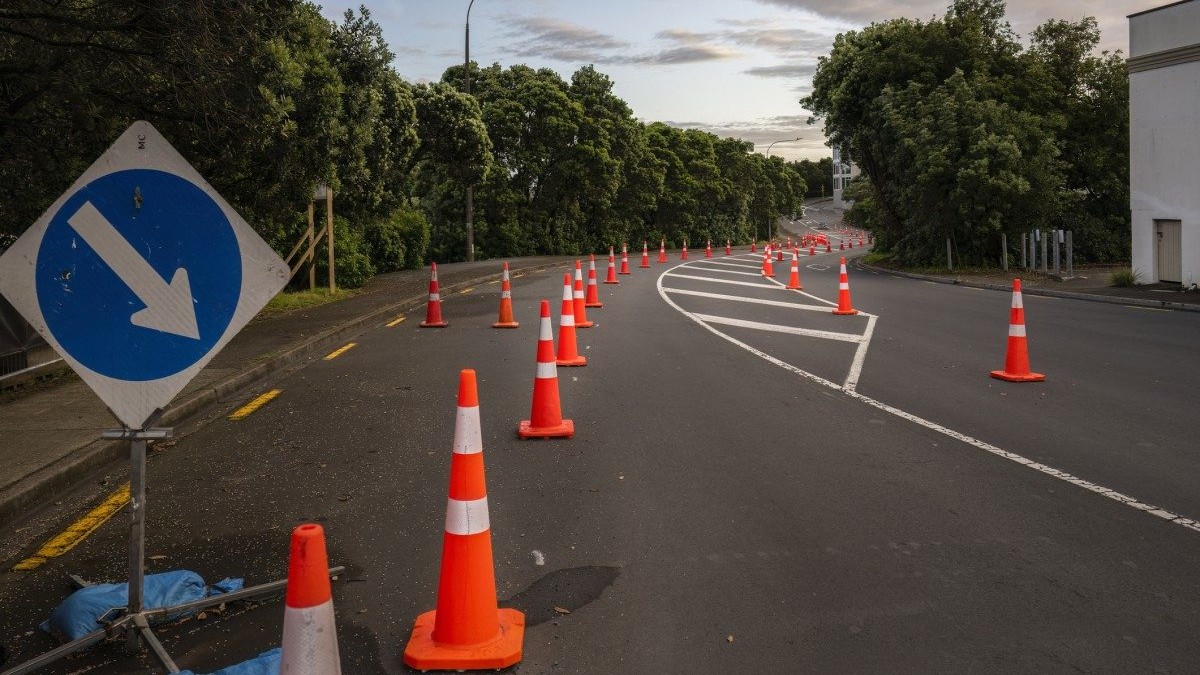NRC backs Auckland Mayor’s war against road cones

National Road Carriers Association says Auckland Mayor Wayne Brown has “hit the cone on the head” over his view on Auckland’s Transport’s approach to roadworks around the city.
Brown earlier this week called for Auckland Transport to work with Waka Kotahi, and utility companies Chorus, Vector, and Watercare, to explore how the region’s Temporary Traffic Management (TTM) can be improved quickly, in ways that increase efficiency safely.
“I am determined to reduce the unjustifiable economic and social disruption caused by the existing approach to temporary traffic management,” Brown said.
“The length of time that roadworks take and frequency of lane closures, together with the number of road cones used, is excessive and unnecessary.”
NRC chief executive Justin Tighe-Umbers said in 2022 Waka Kotahi proposed a shift to a risk-based approach to roadworks safety versus the prescriptive one-size-fits all tick-box approach of coning off everything.
“Auckland Transport didn’t agree, and the result is the road cone mountain commuters now navigate across our largest and busiest city,” he said.
“Auckland Transport and other local bodies need to allow tailored traffic management that is job-appropriate, less costly, and far less disruptive.
“We agree with Mayor Brown that the current overly prescriptive traffic management regime is unjustifiable. It is placing unnecessary economic cost and disruption on Aucklanders.
“Road maintenance needs to be a priority, but it must be done more efficiently so the impact on the communities is minimised.”
Brown said Auckland Council Group spends at least $145 million on temporary traffic management each year, and utility companies have seen a massive increase in traffic management costs that that he said would contribute to higher charges for Auckland households.
Last week, the Mayor urged transport and utility stakeholders to work with Auckland Transport and his office to fast track and trial a new more flexible approach to TTM.
“This is an important step towards improving Auckland’s transport network, and better management of Auckland Council Group finances,” he said.
The Mayor is calling on key stakeholders to:
- Immediately begin a six-month trial of an approach to TTM that is more tailored and targeted to risk, drawing on Waka Kotahi’s guidelines put forward last year as part of the Draft New Zealand Guide to Temporary Traffic Management.
- As part of the trial, explore opportunities to significantly improve programming and coordination of construction and maintenance work taking place within the road corridor, supporting a ‘one-pass’ approach by contractors wherever possible.
- Look at incentivising contractors to reduce the road space taken up by TTM through a system of financial charges and penalties.
- Assist with the design of an independent report, commissioned by the Auckland Mayor’s Office, that would quantify the costs and benefits of both the existing TTM approach and the more flexible trialled approach in terms of road safety, cost, delivery timeframes, and user experience. The report will inform the roll-out of a fit-for-purpose TTM system.
“Road repair and maintenance work is essential and unavoidable, and we must accept some traffic disruption as the price of building and maintaining Auckland’s infrastructure network, but the price we pay is too high,” Brown said.
“The proliferation of road cones is the result of an overly prescriptive temporary traffic management regime, where little to no adjustment is made for the actual level of risk, and this is where I see an opportunity for more immediate progress.”
Under the current TTM, the methodology for closing lanes and deploying cones is similar, regardless of whether it’s being done for an event or road repairs, whether work is being carried out on the road or footpath, or it’s an urban or rural environment.
“Contractors appear to take up more space on the road network than is necessary for their own parking, material storage and lunchrooms, increasing the cost of disruption to road users at minimal cost to themselves,” Brown said.
“This is an absurd and unjustifiable burden on ratepayers, consumers, and road users. Fixing Auckland requires us to address exactly these sorts of systemic failures.
“Local boards have also reported temporary traffic management costs are prohibitive for community events, such as Anzac Day and Santa parades, which may be at risk as a result.
“I do not accept the mantra ‘safety at any cost’. It cannot continue to hold back safe and reasonable improvements to temporary traffic management, which is currently a costly and annoying imposition on the daily lives of Aucklanders.”





